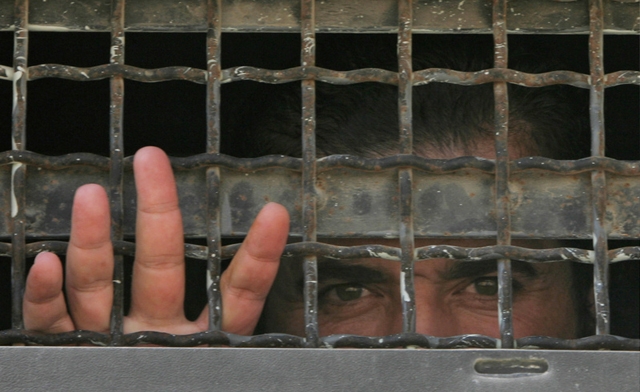Adalah to UN Committee: Israel continuing to violate Palestinian & Bedouin rights, breaching convention against racial discrimination
Adalah – The Legal Center for Arab Minority Rights in Israel submitted two reports this month to the United Nations Committee on the Elimination of Discrimination, in advance of the committee’s preliminary questions or “list of themes” to the State of Israel regarding its compliance with the International Convention on the Elimination of All Forms of Racial Discrimination, or ICERD (signed by Israel in 1966, ratified in 1979).
The two reports address: (1) Violations of the rights of Palestinian Arab citizens of Israel, submitted by Adalah individually; and (2) Violations of the rights of Arab Bedouin citizens in the Naqab/Negev, submitted jointly with the Negev Coexistence Forum (NCF).
The committee is scheduled to hold its review of Israel at its upcoming session in Geneva on 4-5 December 2019. Adalah and NCF staff will participate in the review session and will be available for media interviews.
The reports provided updated information and analyses on legal, political, and policy developments since the UN committee’s previous review of Israel in 2012. It further highlighted Israel’s failure to comply with the committee’s previous concluding observations and recommendations to reverse many of the state’s racially discriminatory practices.
Adalah’s submission on Palestinian citizens of Israel highlighted the following key concerns:
- Violations of the right to equality, particularly after the enactment of the Jewish Nation-State Law, which constitutionally enshrines the ethnic-religious identity of the state as exclusively Jewish, and demotes Arabic from an official language of the state to a “special status”.
- Policies of demographic control, as manifested through discriminatory citizenship laws like the Law of Return; the ongoing ban on family unification between Palestinian citizens of Israel and Palestinians from the Occupied Palestinian Territory (OPT); and the arbitrary revocation of citizenship for “breach of loyalty”, broadly defined.
- Attacks on political participation, including legislation like the “Expulsion of MKs Law”; motions to disqualify Arab parties and candidates from running in the Israeli elections; racist incitement against Palestinian Arab citizens and the Arab leadership in Israel by Prime Minister Benjamin Netanyahu; and the placement of hidden surveillance cameras in Arab polling stations during the April 2019 election and the Likud’s unsuccessful attempt to do so via emergency legislation during the September 2019 election.
- Low representation of Arab citizens in general – and Arab women in particular – in civil service, due to the state’s lack of serious efforts and will to improve the situation.
Adalah and NCF’s submission on Bedouin citizens in the Naqab highlighted the following key concerns:
- History of forced displacement, which continues to this day through the state’s non-recognition of Bedouin land ownership in the Naqab, its refusal or negligence to provide basic services particularly to unrecognized villages, and its plans to forcibly urbanize Bedouins into impoverished, concentrated townships.
- Racist incitement by public officials, including Bedouin Development Authority Director Yair Maayan; Public Security Minister Gilad Erdan; Housing and Construction Minister Yoav Galant; and Prime Minister Benjamin Netanyahu against the Arab Bedouin community.
- Housing and planning discrimination, including Israel’s policy of home demolitions and forced evictions; plans for development-induced displacement through the construction of an industrial zone, highways, railways, and a phosphate mine; and legislation like the Kaminitz Law, which expands the state’s powers to implement home demolition and eviction orders and markedly increases the use and severity of financial penalties for building offenses under the law.
- Employment discrimination, due to a lack of industrial zones and public transportation in Bedouin communities, as well as failure to collect accurate data that consequently neglects thousands of Bedouin citizens in unrecognized villages.
- Education discrimination, as a result of the state’s failure to address classroom shortages and overcrowding, inadequate provision of preschools, high dropout rates, and low educational achievement.
Adalah and NCF will continue to follow-up with the UN Committee after it delivers its List of Themes to Israel.
- CLICK HERE to read Adalah’s report on violations of the rights of Palestinian Arab citizens of Israel
- CLICK HERE to read joint report of the Negev Co-Existence Forum and Adalah on violations of the rights of Arab Bedouin citizens in the Naqab/Negev
- CLICK HERE to read State of Israel’s report to CERD (2017)
Related Press Releases:
- UN Calls on Israel to End Racial Discrimination
- UN committee on women concerned by Israel's systemic discrimination against Arab women citizens
- Adalah to UN: Condemn Israel’s Jewish Nation-State Law
- UN body to Israel: Address key issues regarding Bedouin citizens, discrimination against non-Jews
- UN human rights experts raise grave concerns about Israel’s planned forced displacement of Bedouin














